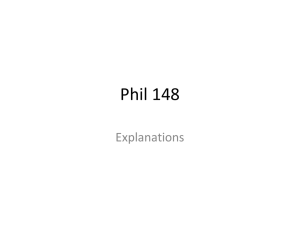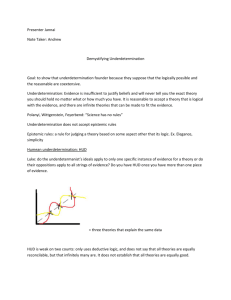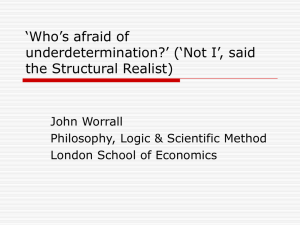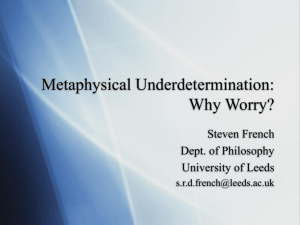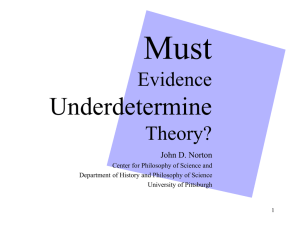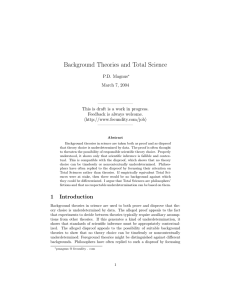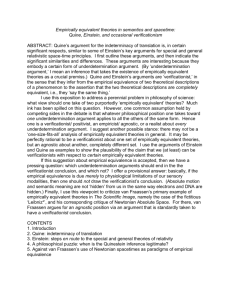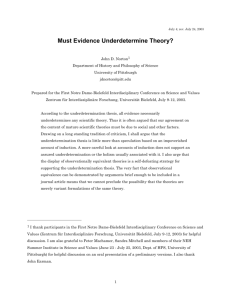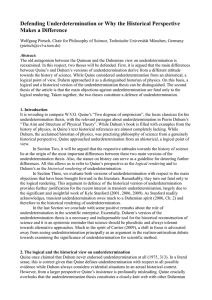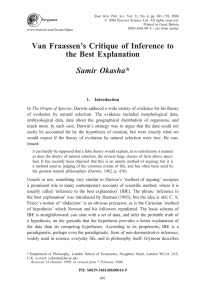constructive empiricism--the view that science aims at theories that are
advertisement
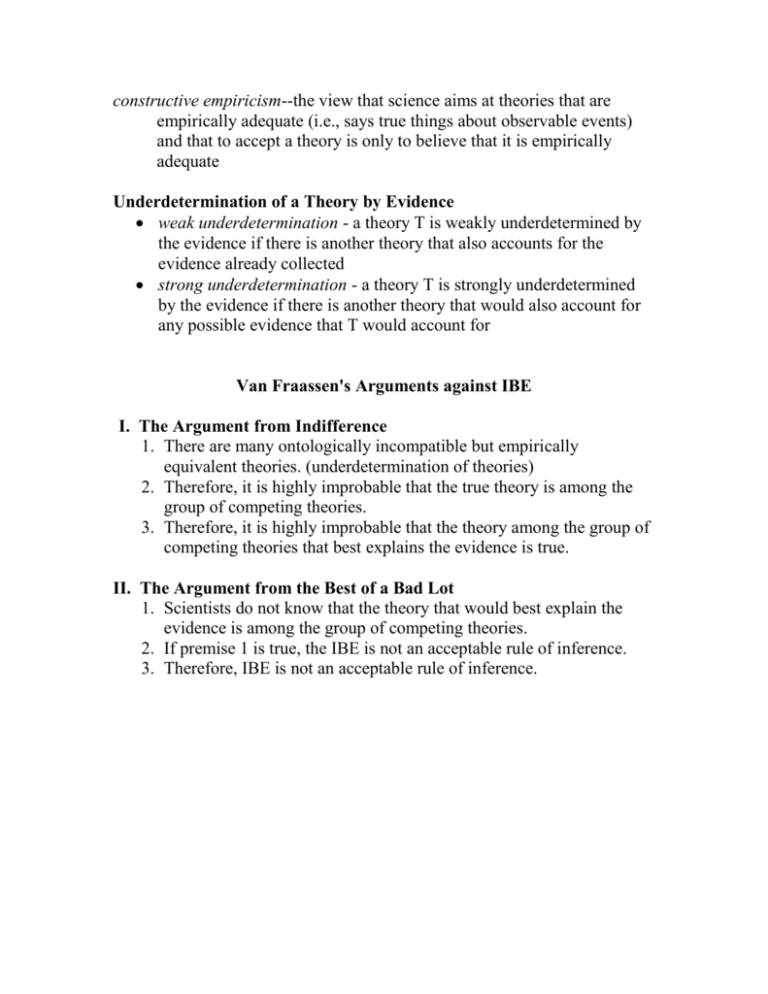
constructive empiricism--the view that science aims at theories that are empirically adequate (i.e., says true things about observable events) and that to accept a theory is only to believe that it is empirically adequate Underdetermination of a Theory by Evidence weak underdetermination - a theory T is weakly underdetermined by the evidence if there is another theory that also accounts for the evidence already collected strong underdetermination - a theory T is strongly underdetermined by the evidence if there is another theory that would also account for any possible evidence that T would account for Van Fraassen's Arguments against IBE I. The Argument from Indifference 1. There are many ontologically incompatible but empirically equivalent theories. (underdetermination of theories) 2. Therefore, it is highly improbable that the true theory is among the group of competing theories. 3. Therefore, it is highly improbable that the theory among the group of competing theories that best explains the evidence is true. II. The Argument from the Best of a Bad Lot 1. Scientists do not know that the theory that would best explain the evidence is among the group of competing theories. 2. If premise 1 is true, the IBE is not an acceptable rule of inference. 3. Therefore, IBE is not an acceptable rule of inference. Van Fraassen's Argument against Scientific Realism 1. Belief in the empirical adequacy of scientific theories (constructive empiricism) is sufficient to account for the nature and practice of science. 2. Therefore, belief in the existence of theoretical entities is unnecessary to account for the nature and practice of science, and it exposes us to an unnecessary "epistemic risk." 3. Therefore, constructive empiricism is superior to scientific realism. Worrall's Defense of Scientific Realism 1. The best way to account for 'persistent similarities' among our ordinary, non-scientific observations is to accept the existence of ordinary external objects. 2. Similarly, the best way to account for 'persistent similarities' among scientific evidence is to accept the existence of theoretical objects. 3. Therefore, believing in the existence of theoretical objects is no less reasonable than believing in the existence of ordinary external objects.
